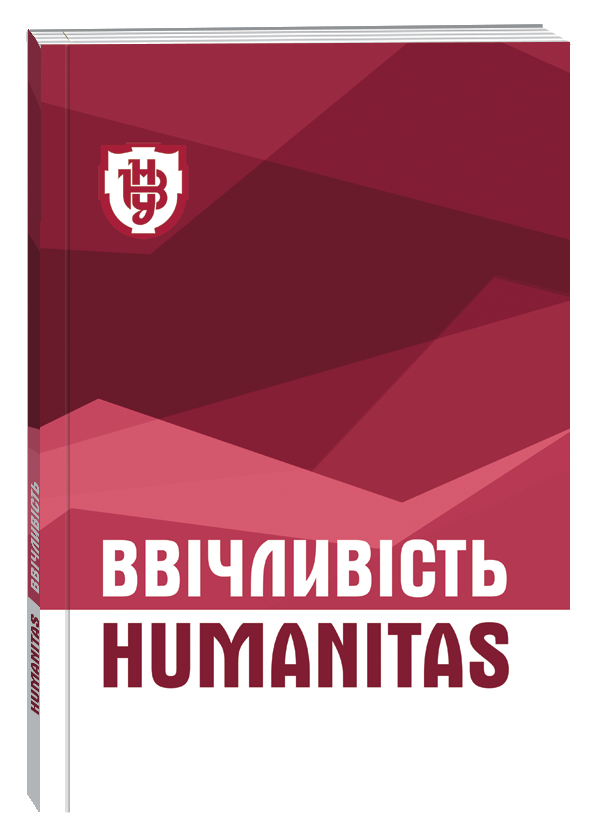ACTIVE CIVIC POSITION OF STUDENTS: THEORETICAL AND PRACTICAL APPROACHES
DOI:
https://doi.org/10.32782/humanitas/2024.3.13Keywords:
youth, protest potential, educational institution, student unions, rallies, volunteeringAbstract
As early as November 17, 1939, Czechoslovak students in Prague showed their civic stance, protesting against the oppression of the German invaders and their occupation policy. Today, the international student day falls on this date, which is no coincidence, since, as will be shown below, the student body itself, as a social group, has an extremely high protest potential. The current article examines the main theoretical and practical approaches to the issue of understanding and rethinking the origins and directions of students' active citizenship. The activity of domestic student unions and organizations during the revolutionary events in Ukraine was described and their influence on the post-Maidan processes was determined. The main emphasis of the article is on identifying opportunities for society and the state created by the activity of student youth. Also, in the course of the study, the issue of challenges and prospects facing students during the fullscale war of the Russian Federation against Ukraine was highlighted, in the context of involving them in military service and helping the front and volunteering. The study contributes to a better understanding of students' motivation to demonstrate their active citizenship. The theoretical result of this article was the identification of patterns of interaction between Ukrainian students and other social groups during the revolutionary events in Ukraine and the full-scale aggression of the Russian Federation after February 24, 2022. It is the examination of the activity of Ukrainian students from the standpoint of other residents of Ukraine that is an element of the scientific novelty of the work. The practical result of the study is a number of recommendations for more effective use of the active civic position of students for the benefit of Ukrainian society, which will minimize the destructive impact, changing the public's attitude towards this social group to a more favorable and loyal one. The obtained practical results can be used by both public and private educational structures.
References
Бялик O. Роль студентського самоврядування у самореалізації студентів закладу вищої освіти. Modern engineering and innovative technologies. 2022. № 23. С. 71–75.
Вінтоняк О. В., Зварич Р. В. Українська мова та історія у формуванні громадянської позиції студентів педагогічного коледжу. Науковий часопис НПУ імені М. П. Драгоманова. 2022. № 89. С. 26–31.
Гевко О., Романишина Л. М., Мірошніченко В. Формування громадянської свідомості студентів технічних спеціальностей на заняттях з гуманітарних дисциплін. Вісник науки та освіти. 2023. № 4. С. 390–400.
Громадська організація Українські Студенти за Свободу. studfreedom.org. URL: https://studfreedom.org/ (дата звернення: 19.06.2024).
Зросла кількість українців, які підтримують Революцію Гідності. Укрінформ – актуальні новини України та світу. URL: https://www.ukrinform.ua/rubric-society/3195326-zrosla-kilkist-ukrainciv-aki-pidtrimuut-revoluciugidnosti.html (дата звернення: 19.06.2024).
Ївженко Ю., Харитонова І. Теоретичні аспекти проблеми громадянського виховання студентів педагогічних спеціальностей. Нові технології навчання. 2021. № 95. С. 82–89.
Кендус О. Євромайдан–Революція Гідності на фоні культурно-мистецького простору українського суспільства. Науково-теоретичний альманах Грані. 2022. № 6. С. 35–44.
Ковальчук В. Конституційна, громадянська та національна ідентичність через призму формування політичної нації в Україні. Український часопис конституційного права. 2021. № 4. С. 14–19.
Наливайко Т. В. Формування громадянської позиції особистості. Науковий вісник Херсонського державного університету. 2014. Вип. 2. С. 100–103.
Омельянчук О. «До смерті сина я могла перейти на російську у відповідь. Після – принципово не переходжу». Історія закатованого 18-річного активіста. Радіо Свобода. URL: https://www.radiosvoboda.org/a/30315297.html (дата звернення: 19.06.2024).
Полєхіна В. Теоретичні основи визначення змісту поняття «активна громадянська позиція молоді». Збірник наукових праць Уманського державного педагогічного університету. 2022. № 3. С. 42–48.
Про нас. ВГО «Спортивна студентська спілка України». URL: https://studsport.com.ua/ (дата звернення: 19.06.2024).
Сафар'янс Є. Студентський страйк 2014 року: початок Євромайдану. Національний меморіальний комплекс Героїв Небесної Сотні – Музей Революції Гідності. URL: https://www.maidanmuseum.org/uk/node/1481 (дата звернення: 19.06.2024).
Цуркан Т. Активна життєва позиція студентської молоді в умовах війни. Проблеми освіти. 2023. Вип. 1. С. 347–359.
Що таке УСЛ?. Ukrainian Students League. URL: https://www.usl.org.ua/about-us (дата звернення: 19.06.2024).
Alscher P., Ludewig U., McElvany N. Civic education, teaching quality and students willingness to participate in political and civic life: Political interest and knowledge as mediators. Journal of youth and adolescence. 2022. № 10. С. 1886–1900.
Hemer K. M., Reason R. D. Civic learning for dissent: Developing students' activist orientation. Journal of College Student Development. 2021. № 1. С. 37–54.
Oglu A. O. T. Pedagogical Conditions And Mechanisms Of Development Of Social Active Civil Competence In Students. Turkish Journal of Computer and Mathematics Education. 2021. № 7. С. 433–442.
Tursunboyevich O. A. Pedagogical and psychological opportunities for the development of social active civil competences in students. ACADEMICIA: An International Multidisciplinary Research Journal. 2021. № 3. С. 1888–1897.







